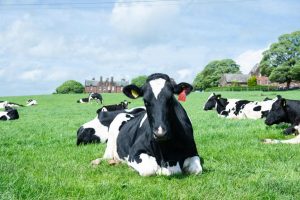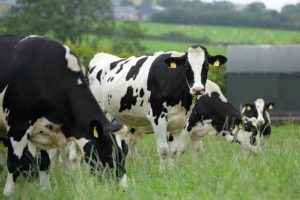
UK mixed family farmer David Butler discussed Britons experiencing more possible food shortages in the UK. The war in Ukraine has disrupted grain exports majorly, as Ukraine usually exports around 500,000 tons a month. Many farmers have been feeling the fallout effects of the conflict. Mr Butler explained how some farmers were struggling to keep growing certain vegetables like cucumbers due to the cost of heating greenhouses, which is causing energy bills to double. The mixed farmer also discussed why some farmers sell off some of their herd, due to the increased costs of living.
Mr Butler said: “Regrettably I think that is so, the agriculture sector is very broad with a lot of different sectors.
“And talking about sectors I’m not directly involved in horticulture, the greenhouse side of horticulture is having a particularly tough time.
“Because of the fact again that they have to heat the greenhouses and the energy costs are so high.
“I think a lot of greenhouses basically mothball production or shutting down which is very serious for commodities like… Foods like cucumbers.
Mr Butler added: “Also another sector which I am involved in is dairy.
“And I am hearing about people who are looking at selling some of their herd.
“Because they aren’t prepared to pay the current prices for fertiliser.
“So they’re going to be short… So their actually reducing the herd numbers.”
Due to the war in Ukraine, many agricultural industries have been affected.
One of the fallout effects of the conflict has been the price of fertiliser.
When farmers in the UK have been purchasing fertiliser, only to be told the cost of their orders after the fertiliser arrives.
Some Brits are already turning to food banks in order to be able to feed themselves.
Director of UK Impact at Save the Children, Dan Paskins said: “What we are seeing now is something that none of us has seen in our lifetimes.
“People – including working families – are now avoiding cooking family meals and eating cold food in cold homes.
“Many simply cannot afford the costs of putting on the oven and cutting down on electricity. It costs around 21p to boil a kettle.
“If you boil the kettle twice a day for a month, it would cost around £12. It costs around 42p to cook something in the oven for half an hour (including the time to heat up), so around £12 to cook one hot meal in the oven per day.
“When you are counting every penny all these things become barriers and added up everyday tips people over into debt.”
Mr Paskins added: “People are living off sandwiches, bread, cold or tinned food. This is very limiting, reducing the nutritious meals that we want for our children. Food banks are also responding and we have found people are rejecting food that involves heating up. The government needs to act.”

























